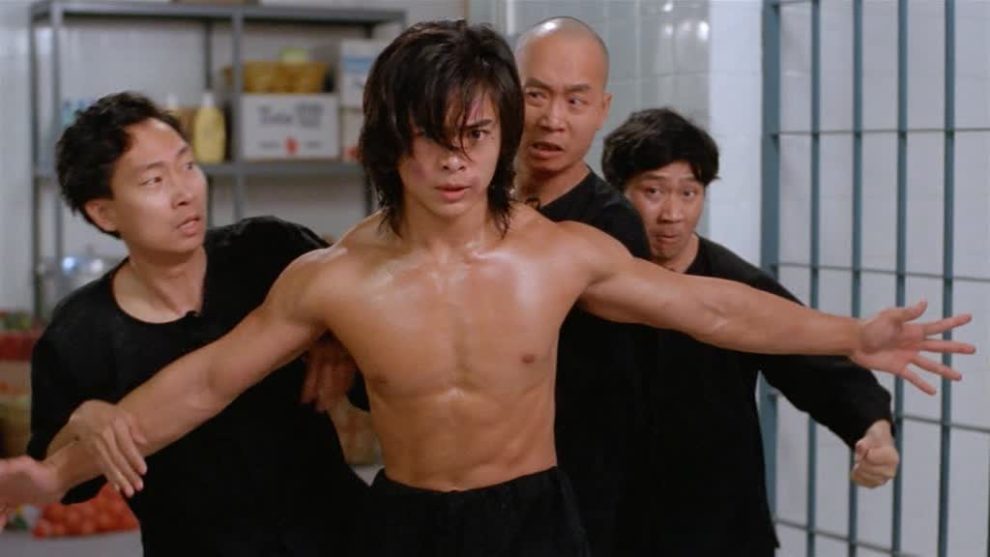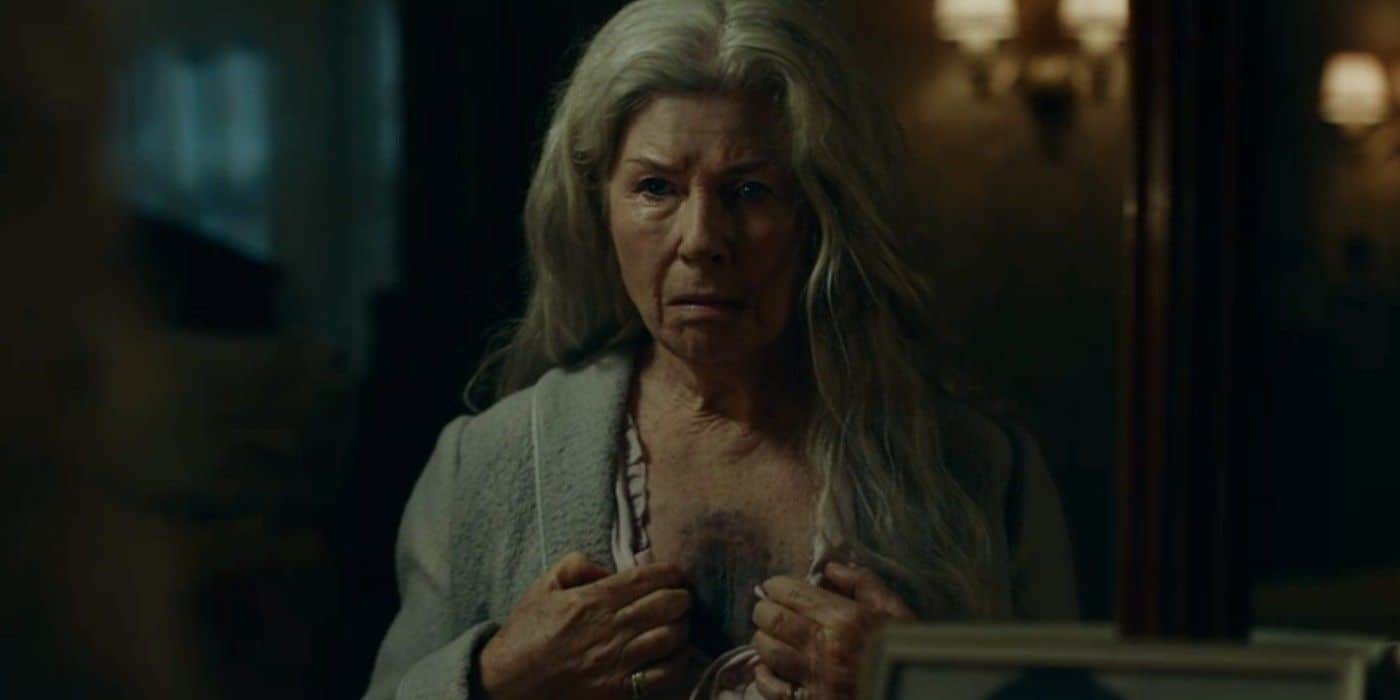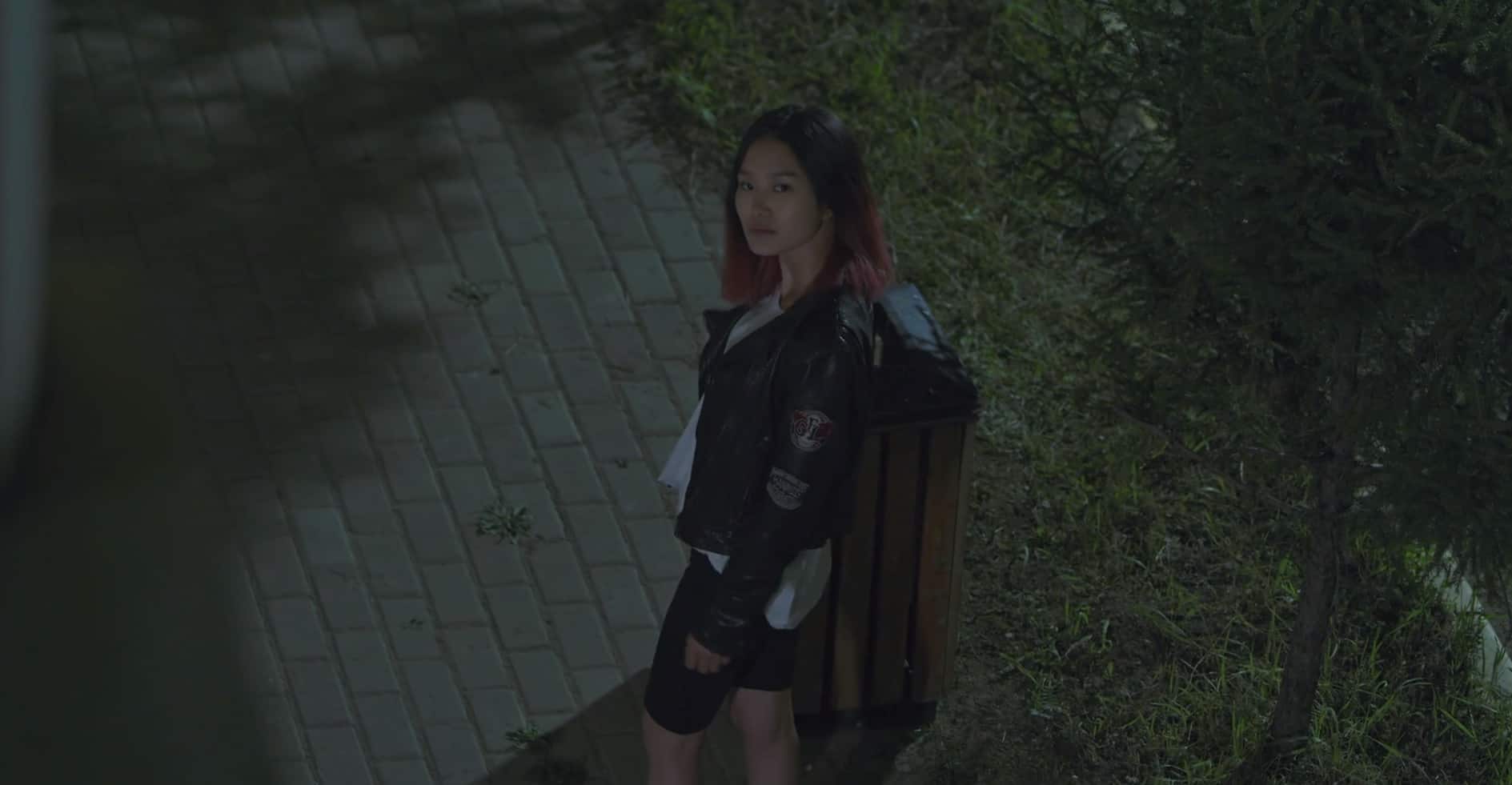After the critical and commercial acclaim of Ringo Lam's “Prison on Fire”-films, many directors and studio executives aimed to repeat the success of these works, resulting in a small wave of features set in prisons or dealing with similar themes. Based on the Japanese manga of the same name by Masahiko Takajo and Saruwatari Tetsuya, “Riki-Oh: The Story of Ricky” can be regarded as part of that wave, but eventually evolved into something quite different, as it is being hailed as a cult classic among fans of exploitation, martial arts and even splatter. Directed by Lam Nai-choi, who was famous for his high concept adaptations of manga and other material, “The Story of Ricky”, also titled “Caged Fury” in some territories, is infamous for its use of excessive violence, which became the center of attention for many critics, but is also interesting for its depiction of the prison as a mirror or society, a theme commonly used in the sub-genre, most notably in features such as the Japanese “Sasori”-series.
Buy This Title
on Amazon
The story is set in the year 2001, when state institutions have become privatized in an attempt to save money. Along with the police and the penal systems, also correctional facilities have been affected by these policies, resulting in them being led like branches of a company with the purpose of turning a profit for their owners. Among a new group of prisoners we find Lik Wong (or Ricky/ played by Fan Siu-wong), whose sentence is ten years for manslaughter and obstruction of justice and who quickly establishes a reputation among the prisoners and the staff as one who will not be pushed around, and does not like witnessing others being bullied or violated. As he fends of attacks quite violently, spreading fear among the bullies and those in business with the warden, Assistant Warden Dan (Fan Mei-sheng) attempts to intimidate Lik Wong, swearing he will make life in prison hell for the young man, but his “victim” is unimpressed and fights back.
Check also this interview
However, Lik Wong's rebellion becomes a whole different matter when is about to expose the drug business in prison, a lucrative enterprise established by the warden, his guards and some of the prisoners. Eventually, the “Gang of Four”, feared leaders among the inmates and martial-arts-experts, decide to challenge the new prisoners, who as quickly become a symbol for rebellion against the regime, and make him silent once and for all. When finally the Warden (Ho Ka-Kui) comes back from a business trip, he takes part in what will be a painful ordeal for Lik Wong, testing his will and strength.
As mentioned before, the most important aspect of “Story of Ricky”, according to many critics, was the amount of violence, stating it was part of a general trend in movies becoming increasingly brutal in order to make a “quick buck”. Even its lead Fan Siu-wong expressed concern about the story after having read the Japanese manga and realizing how blood-thirsty some scenes really are. However, director Lam Nai-choi was quite truthful in that regard to the source material (albeit for a few changes) and probably saw it in the context of the kind of vision Takajo and Tetsuya were going for. Considering its over-the-top quality, no one will likely take scenes seriously which feature people being strangled by intestines or an attacker's jaw being punched right off his face. “Story of Ricky” fully embraces its roots and the various degrees of exaggeration, and it is integral to the kind of entertainment it has to offer for is audience.
On another lever, there is something to be said when viewing “Story of Ricky” in the light of the prison movie-genre. Similar to the “Sasori”-series or even “Prison on Fire”, its brutality and bloodshed can be considered a mirror to a society showing utter disregard for humanity and defined by misogynist hierarchies. While no one would confuse Nai-choi's feature with a prison drama such as “The Shawshank Redemption”, there is an undeniable satirical touch to some scenes and characters, most significantly perhaps Fan Mei-sheng's character whose obesity and insatiable appetite for food, drink and porn (if his extensive “library” is any indication) exposes him as the kind of capitalist predator he is. In this context, Lik Wong/Ricky becomes a true hero, fighting for those without a voice and who become easy prey for the warden and his many goons.
Adding to its excessive and over-the-top nature are the performances in “Story of Ricky”. Whereas actors like Fan Mei-sheng seem to take no small amount of delight in playing utter caricatures and villains, Fan Siu-wong also gives a great performance as the hero due to his presence in many scenes (not so much for his acting in the “dramatic” scenes). His take on the character of Lik Wong/Ricky adds to the overall entertainment the movie provides for genre audiences.
In conclusion, “Riki-Oh: Story of Ricky” is an enjoyable, over-the-top blend of martial-arts, exploitation and splatter. Lam Nai-choi has managed to create a true cult movie for genre audiences, memorable for its excessive violence and its performances.
















